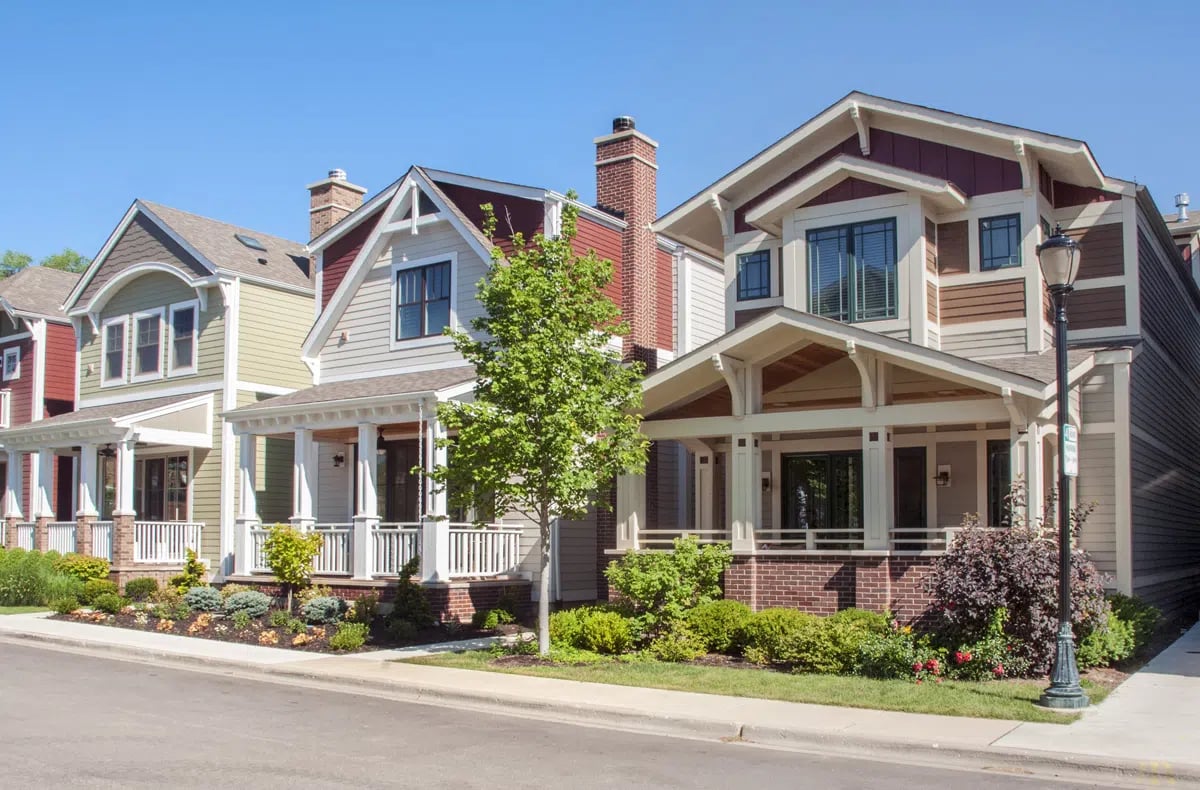This update from The Green Builder Coalition highlights and summarizes news on codes/regulations, legislation, trends, techniques, and products.
Here’s a quick recap on code changes and news from around the nation in case you missed it.
Maine
LD815 will go into effect in 2024. Titled “An Act to Provide Energy Efficiency Program Outreach and Assistance to Manufactured Housing Residents,” it requires the Maine State Housing Authority to participate in education and outreach services to those living in manufactured housing. Annual reports stating the program’s accomplishments are to be filed for years 2024-2026.
North Carolina
HB488 sparked controversy in the Tar Heel state. This sweeping bill would halt the state’s update of the 2009 energy conservation code until at least 2031, as well as block new standards for thicker insulation, more efficient lighting, and other energy-saving features in new homes.
The proposed legislation also dilutes the power of the governor by creating a new Residential Code Council to govern residential construction. The proposed Council would give 3 of 13 seats to residential contractors, but none to energy efficiency experts. (The Governor would be allowed to appoint one member from the public-at-large, so there is an opportunity to bring in someone with energy efficiency expertise.)
HB 488 passed the House in spring 2023, passed the Senate in late June and was then sent to the Governor. The Governor promptly vetoed the bill in early July. Well, about 5 weeks later, the North Carolina House and Senate both voted to override Governor Cooper’s veto, thereby freezing the state’s outdated energy code through 2031 and modifying the building code council. The bill went into effect upon passage .
Ohio
In mid-August of 2023, the Ohio Board of Building Standards adopted the 2024 Ohio Building (OBC), Mechanical (MC) and Plumbing Codes (OPC) by incorporating by reference the 2021 edition of the ICC’s codes (I-Codes) with Ohio amendments.
In early August, the Clark County Commission approved new requirements for builders to include electric vehicle charging capabilities in all new and renovated buildings. The new code provisions are part of the Title 30 Unified Development Code.
The County provides developers with guidelines for the number of EV-capable and EV-installed charging spaces required for different types of developments. In addition to requiring dedicated electrical capacity and the necessary infrastructure to charge vehicles, the code will also require ADA-compliant stations in multifamily and non-residential developments.
Mike Collignon, author of our Code Watch and Housing 2.0 Program Manager, is Executive Director and Co-Founder of the Green Builder Coalition, a not-for-profit association dedicated to amplifying the voice of green builders and professionals to drive advocacy and education for more sustainable homebuilding practices.
Building Code Moves Around the Nation
This update from The Green Builder Coalition highlights and summarizes news on codes/regulations, legislation, trends, techniques, and products.
Here’s a quick recap on code changes and news from around the nation in case you missed it.
Maine
LD815 will go into effect in 2024. Titled “An Act to Provide Energy Efficiency Program Outreach and Assistance to Manufactured Housing Residents,” it requires the Maine State Housing Authority to participate in education and outreach services to those living in manufactured housing. Annual reports stating the program’s accomplishments are to be filed for years 2024-2026.
North Carolina
HB488 sparked controversy in the Tar Heel state. This sweeping bill would halt the state’s update of the 2009 energy conservation code until at least 2031, as well as block new standards for thicker insulation, more efficient lighting, and other energy-saving features in new homes.
The proposed legislation also dilutes the power of the governor by creating a new Residential Code Council to govern residential construction. The proposed Council would give 3 of 13 seats to residential contractors, but none to energy efficiency experts. (The Governor would be allowed to appoint one member from the public-at-large, so there is an opportunity to bring in someone with energy efficiency expertise.)
HB 488 passed the House in spring 2023, passed the Senate in late June and was then sent to the Governor. The Governor promptly vetoed the bill in early July. Well, about 5 weeks later, the North Carolina House and Senate both voted to override Governor Cooper’s veto, thereby freezing the state’s outdated energy code through 2031 and modifying the building code council. The bill went into effect upon passage .
Ohio
In mid-August of 2023, the Ohio Board of Building Standards adopted the 2024 Ohio Building (OBC), Mechanical (MC) and Plumbing Codes (OPC) by incorporating by reference the 2021 edition of the ICC’s codes (I-Codes) with Ohio amendments.
The new codes are available in their entirety for free online by clicking here . The new rules will go into effect March 1, 2024.
Nevada
In early August, the Clark County Commission approved new requirements for builders to include electric vehicle charging capabilities in all new and renovated buildings. The new code provisions are part of the Title 30 Unified Development Code.
The County provides developers with guidelines for the number of EV-capable and EV-installed charging spaces required for different types of developments. In addition to requiring dedicated electrical capacity and the necessary infrastructure to charge vehicles, the code will also require ADA-compliant stations in multifamily and non-residential developments.
By Mike Collignon
Mike Collignon, author of our Code Watch and Housing 2.0 Program Manager, is Executive Director and Co-Founder of the Green Builder Coalition, a not-for-profit association dedicated to amplifying the voice of green builders and professionals to drive advocacy and education for more sustainable homebuilding practices.Also Read